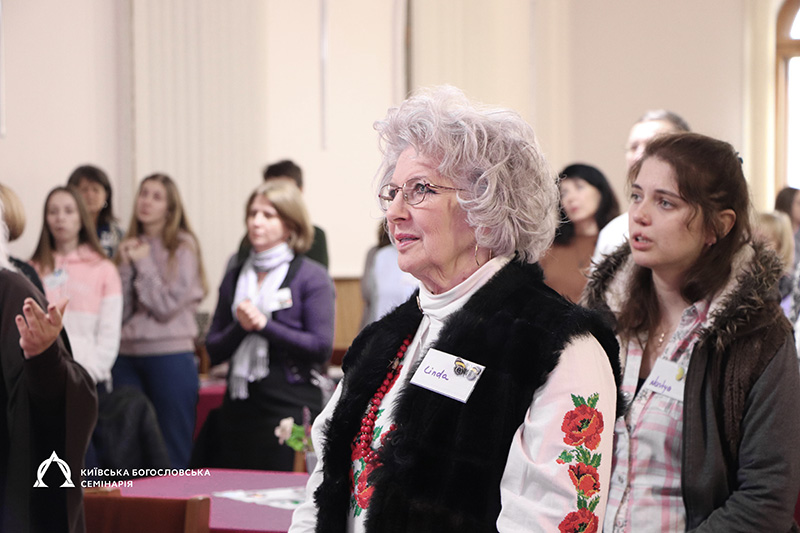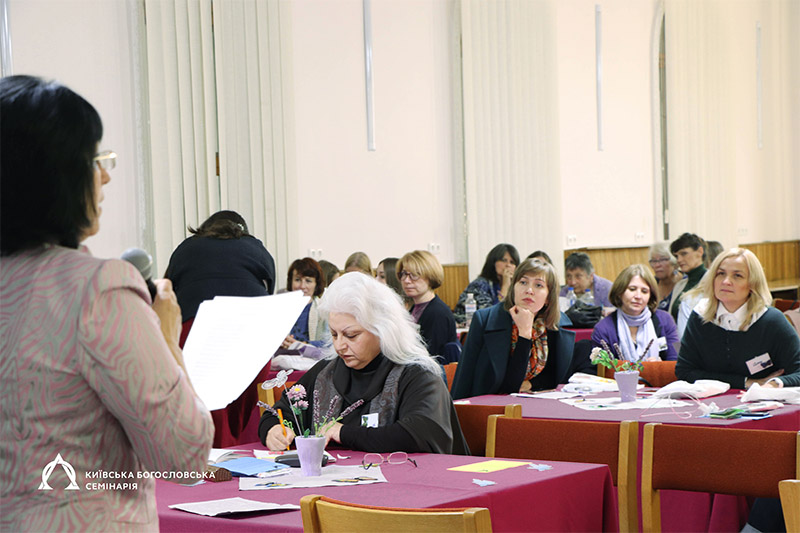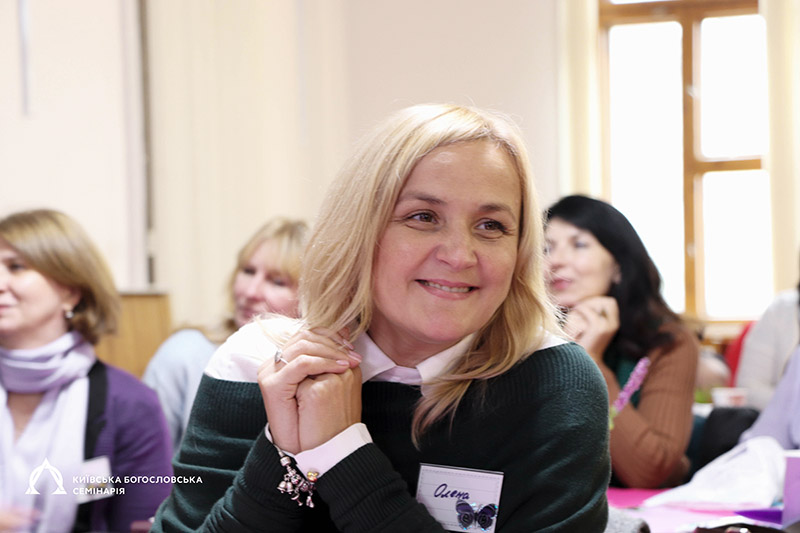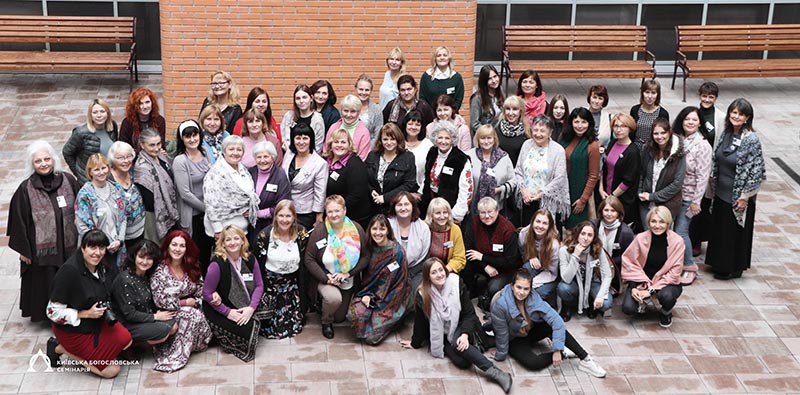Catastrophes, military conflicts, wounds and loses, PTSD all are atypical situations that ordinary people have sometimes to deal with, and security forces such as military, police and firefighters face them regularly. These situations are challenging for most people. Chaplains play an important role in helping people to survive them.
Kyiv Theological Seminary (KTS) offers Pastoral-Chaplaincy Leadership program at the undergraduate level and practical seminars and conferences for chaplains.
In October 26-27, VIII International Women Conference Olive Branch for service women, women chaplains, wives of active servicemen, veterans, volunteers, and associate workers took place at KTS. About a hundred women from Ukraine and the US attended the conference. Conference attendees had the opportunity to hear speakers from Ukraine and the US: head of women ministry of the Olive Branch of Ukraine Zhanna Segeda, crisis counselor Galyna Starchenko (‘13), US army reserve colonel Linda Shaimo, wife of a US Coast Guard officer in reserve, Paula Halvorson, widow of a US army colonel Caroline Grube, and others.

Christians face new challenges in time of military conflict between Ukraine and Russia.
The important question is how to combine Christian love and military service. This was the topic of Zhanna Segeda's speech. She shared her testimony of how the military welcome teams of volunteers who visit our fighters at the frontlines or in permanent locations. People are ready to hear and receive the good news of God's love. Being in difficult conditions, the military is in dire need of attention and support.
"We will always have time for what we consider to be important for us," said Zhanna Segeda, speaking of her service to the military and their families.
Another issue that has received special attention during the conference is the causes and physiological underpinnings of post-traumatic stress disorder (PTSD). People who get into atypical stress situations often experience PTSD. This condition affects not only life of such individuals, but also of their families and friends. To help them cope with PTSD, you need to understand what is happening, be prepared to listen to the suffering person, sometimes just be available, help seeking support of specialists. The first person who should and can support a man with PTSD is his wife. During the conference, wives were advised with specific steps they can take to support their husbands. Speakers shared examples from their own lives what it means to be a military wife, what challenges a military family should be prepared for; how to help children understand why their father is on a business trip so often and for a long time, or why their father changed after returning from war.
The topic of women in military service was not overlooked either. Galyna Starchenko, a volunteer chaplain, crisis counselor, spoke about women as members of a predominantly male team, what challenges they face, what needs they have, and how volunteers can support servicewomen.

Other topics were discussed during the conference included: types of service to families of military personnel and servicewomen. The conference participants shared their experience of serving in different regions of Ukraine and the US.

